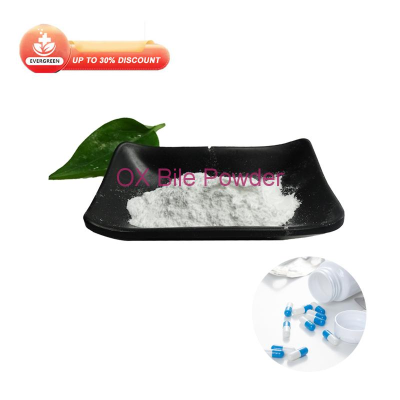-
Categories
-
Pharmaceutical Intermediates
-
Active Pharmaceutical Ingredients
-
Food Additives
- Industrial Coatings
- Agrochemicals
- Dyes and Pigments
- Surfactant
- Flavors and Fragrances
- Chemical Reagents
- Catalyst and Auxiliary
- Natural Products
- Inorganic Chemistry
-
Organic Chemistry
-
Biochemical Engineering
- Analytical Chemistry
- Cosmetic Ingredient
-
Pharmaceutical Intermediates
Promotion
ECHEMI Mall
Wholesale
Weekly Price
Exhibition
News
-
Trade Service
As the largest economy in ASEAN and the fourth most populous country, Indonesia has a relatively complete food safety supervision syst.
On May 9, 2022, the Indonesian Food and Drug Administration announced the new regulations on "Requirements for Heavy Metal Pollution in Processed Foods " , which replaced the 2018 "Requirements for Heavy Metal Pollution in Processed Foods" regulatio.
The new regulations will take effect on April 202 22nd of Mar.
On May 9, 2022, the Indonesian Food and Drug Administration announced the new regulations on "Requirements for Heavy Metal Pollution in Processed Foods " , which replaced the 2018 "Requirements for Heavy Metal Pollution in Processed Foods" regulatio.
The new regulations will take effect on April 202 22nd of Mar.
The regulation stipulates that organizations and individuals engaged in the production, storage, transportation and/or distribution of processed food must comply with the requirements for heavy metal contamination in processed fo.
The regulations set maximum levels for arsenic (As), lead (Pb), mercury (Hg), and cadmium (Cd) contaminants in 45 processed foods, and specify special foods, including infant milk powder, infant food, and canned processed foods tin (Sn) maximum limit requireme.
The regulations set maximum levels for arsenic (As), lead (Pb), mercury (Hg), and cadmium (Cd) contaminants in 45 processed foods, and specify special foods, including infant milk powder, infant food, and canned processed foods tin (Sn) maximum limit requireme.
In order to let exporters understand the main revisions of the regulations and avoid more troubles caused by ignorance of the regulations, today FoodPartners will interpret the main changes in the new regulations on heavy metal limit requirements for processed foo.
Modification of normative language
Modifications to the normative language to define the heavy metal limit requirement as a processed food hygiene requirement, which was expressed in 2018 as "heavy metal limit as a processed food safety requiremen.
Imported processed food testing laboratory
The new regulations stipulate that heavy metal testing of imported food can be carried out by laboratories in the country of origin that have mutual recognition agreements with authorized agencies and/or laboratories accredited in Indonesia according to Indonesian l.
In 2018, it was stipulated that the detection of heavy metal contamination in imported food can be carried out by a foreign laboratory accredited by the National Accreditation Committee or a Mutual Recognition Agreement (MRA) signed by an accreditation agency in the country of orig.
In 2018, it was stipulated that the detection of heavy metal contamination in imported food can be carried out by a foreign laboratory accredited by the National Accreditation Committee or a Mutual Recognition Agreement (MRA) signed by an accreditation agency in the country of orig.
Delete the reference to the CAC food classification system
In the 2018 regulations, the category of processed food refers to the CAC food classification system (such as 00 for dairy products and their analogs, and 00 for baked good.
The new regulations cancel the previous classification method and directly use the product category as the classification (such asDairy products,Fat processed product.
The new regulations cancel the previous classification method and directly use the product category as the classification (such asDairy products,Fat processed product.
Added limited indicators for some product categories
Added heavy metal limit indicators for agar powder raw materials, agar powder, dried fruits, sauces, salads, protein products, and yea.
Subdivide special foods into sub-items: infant formula milk powder, food for special medical purposes, processed food for infants and children, special medical food for adults, processed food for weight control, processed food for athletes, processed food for lactation and pregnant women, and the amount of each sub-it.
Heavy metal limit requirements have been specified, as shown in Table
Heavy metal limit requirements have been specified, as shown in Table
Table 1 Maximum levels of heavy metals in processed foods for athletes, lactation and pregnant women
Revise the index requirements of some products
The lead content of processed fruit juice (Sari Buah Olahan) is more stringent, from 10mg/kg to 03mg/kg; the arsenic content of salt is more stringent, from 15mg/kg to 10mg/kg However, the cadmium content requirements for flavored water-based beverages, electrolyte beverages and granular beverages have been relaxed, from 01mg/kg to 05mg/.
Summary
The newly issued "Requirements for Heavy Metal Pollution in Processed Foods" analyzes the content of changes in regulatio.
The amendments to regulations are based on adaptive changes in the development of the food industry, and refine the limit requirements for special foods, and the limit data for many products have chang.
The amendments to regulations are based on adaptive changes in the development of the food industry, and refine the limit requirements for special foods, and the limit data for many products have chang.







